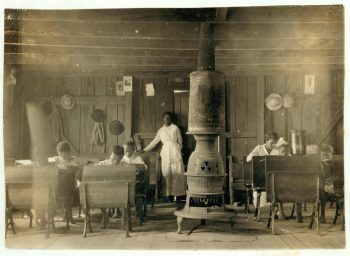James Goodman in The New York Times:
 In the spring of 1890, Albion Tourgée, who had fought for the Union in the United States Army and then against the Ku Klux Klan as a Reconstruction judge, received an invitation to address a conference in upstate New York on the “Negro Question” hosted by the Quaker philanthropist Albert Smiley. Tourgée was an ideal choice: He had remained engaged in the struggle for equality long after many white people had lost interest. But as Steve Luxenberg shows in “Separate: The Story of Plessy v. Ferguson, and America’s Journey From Slavery to Segregation,” Tourgée was tempted to stay home. Longtime allies were boycotting the conference, with the encouragement of black newspaper editors and activists. Their complaint was simple: Not a single “Negro” had been invited. Yet in response to the protest, organizers doubled down. “A patient is not invited to the consultation of the doctors on his case,” Lyman Abbott wrote in The Christian Union.
In the spring of 1890, Albion Tourgée, who had fought for the Union in the United States Army and then against the Ku Klux Klan as a Reconstruction judge, received an invitation to address a conference in upstate New York on the “Negro Question” hosted by the Quaker philanthropist Albert Smiley. Tourgée was an ideal choice: He had remained engaged in the struggle for equality long after many white people had lost interest. But as Steve Luxenberg shows in “Separate: The Story of Plessy v. Ferguson, and America’s Journey From Slavery to Segregation,” Tourgée was tempted to stay home. Longtime allies were boycotting the conference, with the encouragement of black newspaper editors and activists. Their complaint was simple: Not a single “Negro” had been invited. Yet in response to the protest, organizers doubled down. “A patient is not invited to the consultation of the doctors on his case,” Lyman Abbott wrote in The Christian Union.
Tourgée attended and lectured a roomful of liberal reformers, educators and clergymen for over an hour. He celebrated the progress freedmen had made since emancipation, wondered if the churches had forgotten who Christ was and what he stood for, and criticized the presumption of the guest list: “We have sought testimony about the Negro from his avowed friends and confessed enemies, and think we shall obtain the truth by ‘splitting the difference’ between them. The testimony of the Negro in regard to his past and present conditions and aspirations for the future is worth more than that of all the white observers that can be packed upon the planet.”
This incident, which comes toward the end of Luxenberg’s absorbing book, is a valuable reminder of something easy to forget. Not that the North also had a race problem; no sentient American should be able to forget that. Rather, that in the century after Reconstruction, segregation was not the worst possible outcome for black people. There was also exclusion (not separate schools but no schools) and elimination. Thousands of African-Americans were murdered by lynching alone.
More here. (Note: Throughout February, we will publish at least one post dedicated to Black History Month)
